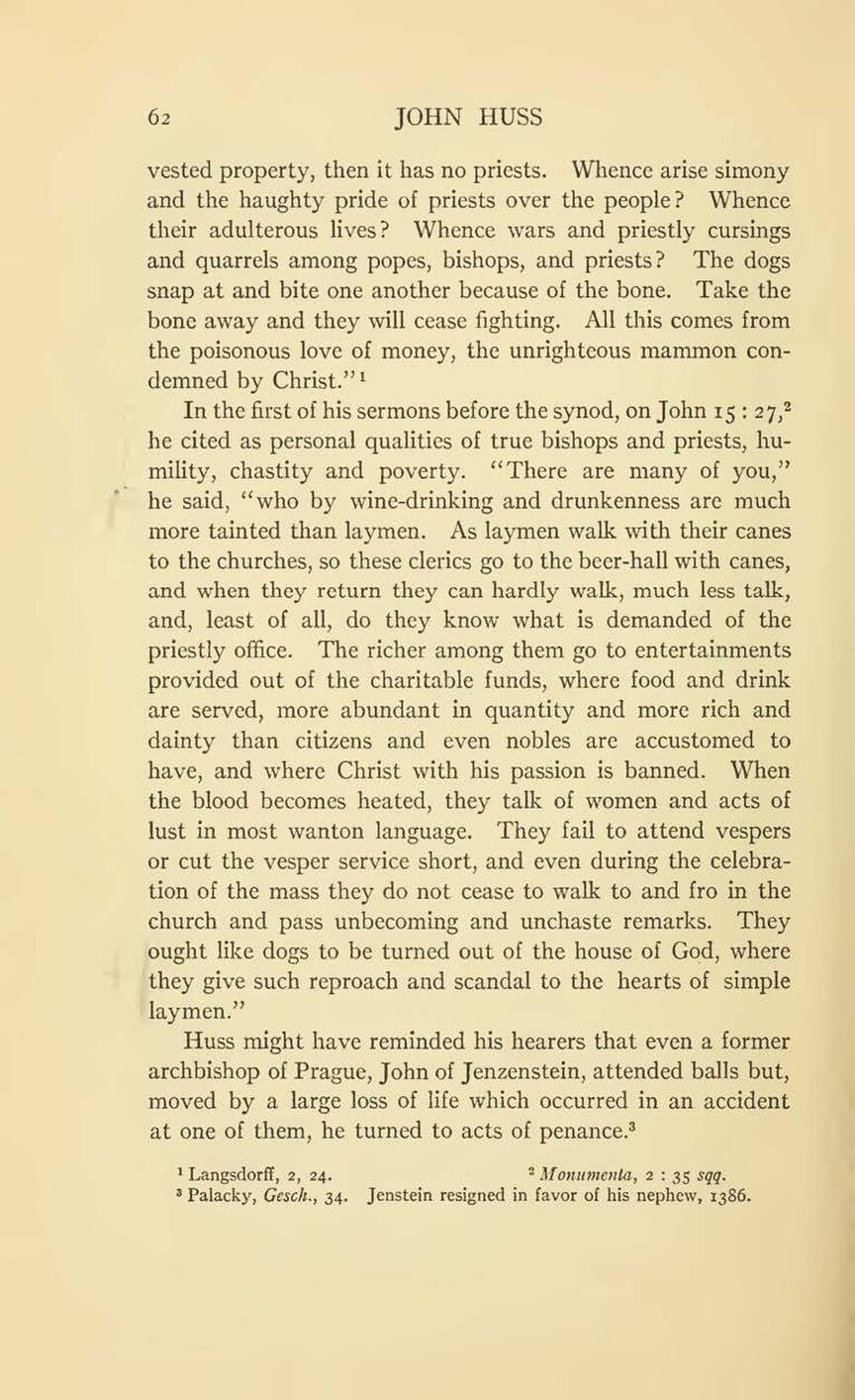vested property, then it has no priests. Whence arise simony and the haughty pride of priests over the people? Whence their adulterous lives? Whence wars and priestly cursings and quarrels among popes, bishops, and priests? The dogs snap at and bite one another because of the bone. Take the bone away and they will cease fighting. All this comes from the poisonous love of money, the unrighteous mammon condemned by Christ.”[1]
In the first of his sermons before the synod, on John 15; 27,[2] he cited as personal qualities of true bishops and priests, humility, chastity and poverty. “There are many of you,” he said, “who by wine-drinking and drunkenness are much more tainted than laymen. As laymen walk with their canes to the churches, so these clerics go to the beer-hall with canes, and when they return they can hardly walk, much less talk, and, least of all, do they know what is demanded of the priestly office. The richer among them go to entertainments provided out of the charitable funds, where food and drink are served, more abundant in quantity and more rich and dainty than citizens and even nobles are accustomed to have, and where Christ with his passion is banned. When the blood becomes heated, they talk of women and acts of lust in most wanton language. They fail to attend vespers or cut the vesper service short, and even during the celebration of the mass they do not cease to walk to and fro in the church and pass unbecoming and unchaste remarks. They ought like dogs to be turned out of the house of God, where they give such reproach and scandal to the hearts of simple laymen.”
Huss might have reminded his hearers that even a former archbishop of Prague, John of Jenzenstein, attended balls but, moved by a large loss of life which occurred in an accident at one of them, he turned to acts of penance.[3]
